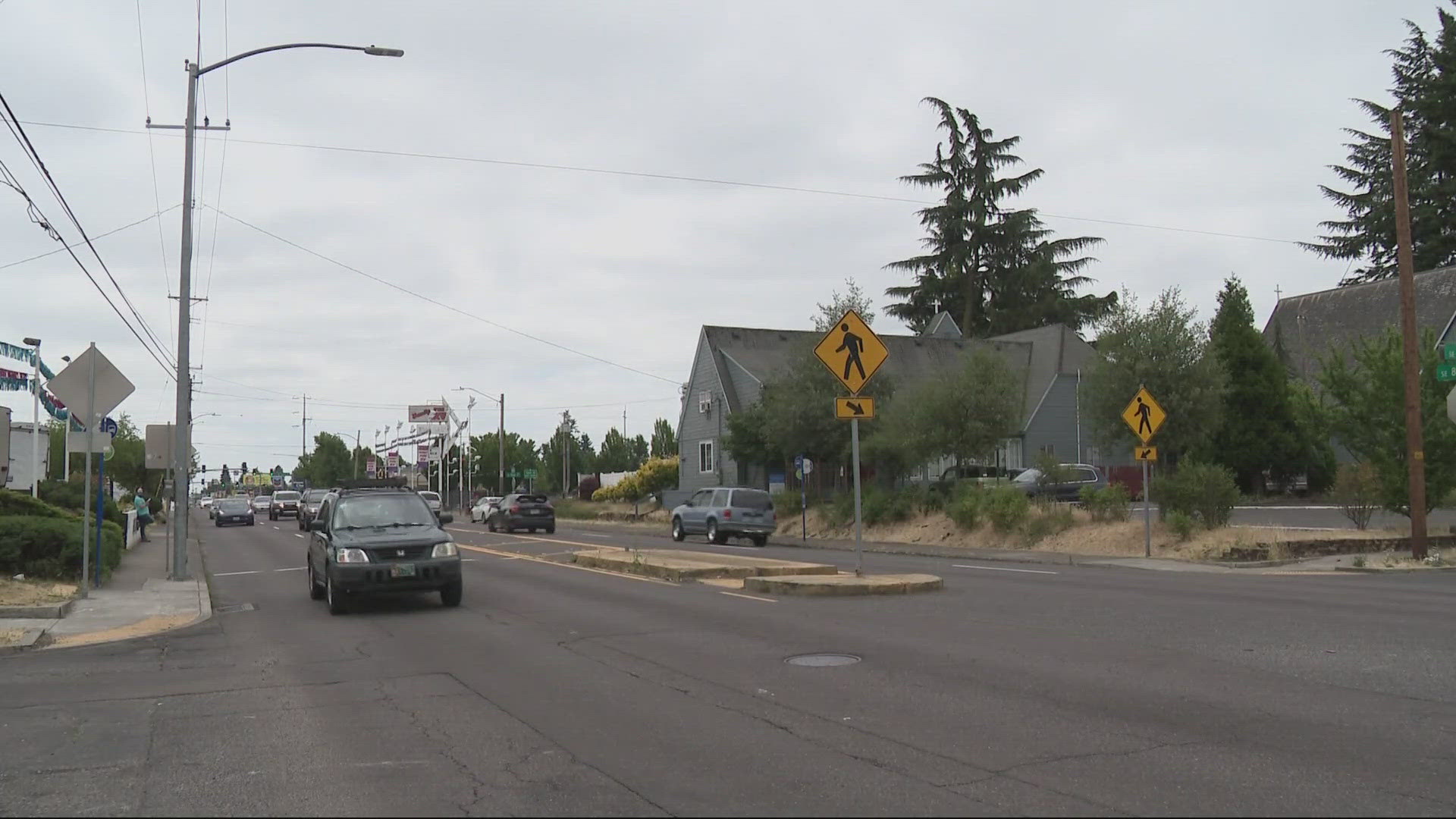PORTLAND, Ore. — TriMet is set to receive $39 million in federal funding for the 82nd Avenue Transit Project, members of Oregon's congressional delegation announced Tuesday, which will go toward the purchase of the agency's first hydrogen fuel-cell electric buses and associated maintenance facility upgrades.
The 82nd Avenue Transit Project is intended to improve service along the corridor for Line 72, which is one of the agency's busiest bus routes. The eventual plan is to replace the Northeast and Southeast 82nd Avenue portions of the route with a new Frequent Express (FX) route, similar to the FX2 line that replaced Line 2 on Southeast Division Street.
The grant will fund the purchase of 14 fuel-cell electric buses, according to TriMet communications director Roberta Altstadt, which are primarily intended to serve the future FX line on 82nd Avenue. The fuel-cell buses will be extra-long and articulated, just like the ones that serve the FX2 line. The new FX line is expected to begin service in 2029.
The project is timed to pair with Portland's 82nd Avenue improvement project, a multi-year effort to improve safety in the corridor, which has historically been among the city's most dangerous.
The improvement effort began after the city reached a deal to take control of the corridor from the Oregon Department of Transportation. The agreement also provides an infusion of state funding to help the Portland Bureau of Transportation bring 82nd Avenue into line with modern safety standards for city streets.
"Last year, Secretary Buttigieg saw first-hand the case for investment on 82nd Avenue. Today, the Biden-Harris Administration delivered," Rep. Earl Blumenauer said in a statement. "The community has united behind a shared vision: transforming a once neglected area into a thriving corridor in a low-carbon, equitable fashion. This funding will make that a reality."
The new funding announcement comes about a week after TriMet received a separate $25 million federal grant from the Rebuilding American Infrastructure with Sustainability and Equity (RAISE) program to help build out a new bus hub facility in Northeast Portland. Both grants will support an overall goal to transition TriMet to a 100% zero-emissions bus fleet by 2040, according to Tuesday's news release.
"Zero-emission buses help move Oregon forward toward a clean energy future with cleaner air and healthier communities," Sen. Jeff Merkley said in a statement. "This huge $39 million investment from the Bipartisan Infrastructure Law will build a stronger, healthier Portland by helping TriMet cut down on carbon pollution, take on climate chaos, and protect communities. It will also enhance service, reliability, and connections to job opportunities in the Metro area, including for the many communities of color who call neighborhoods around 82nd Avenue home."

